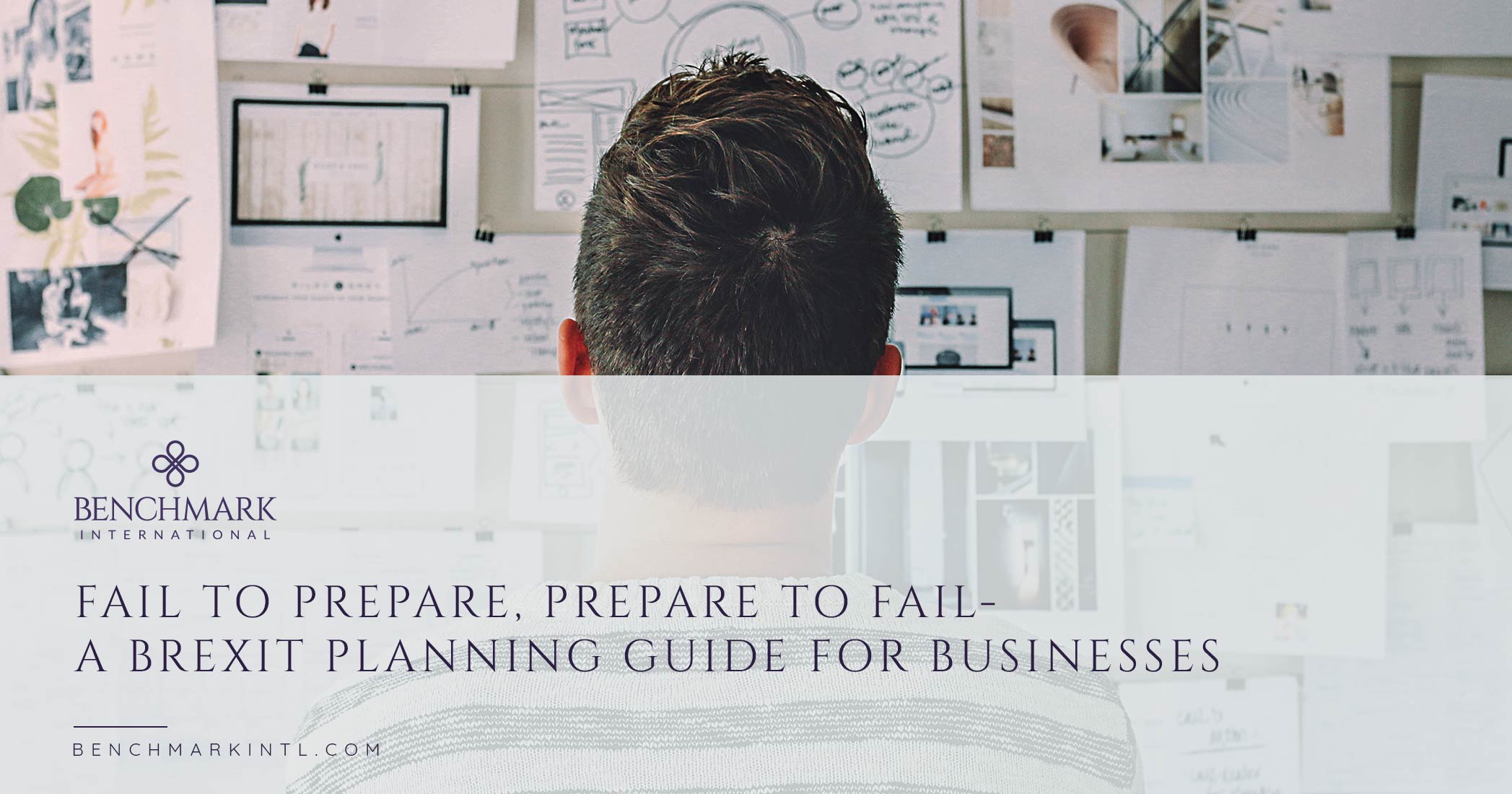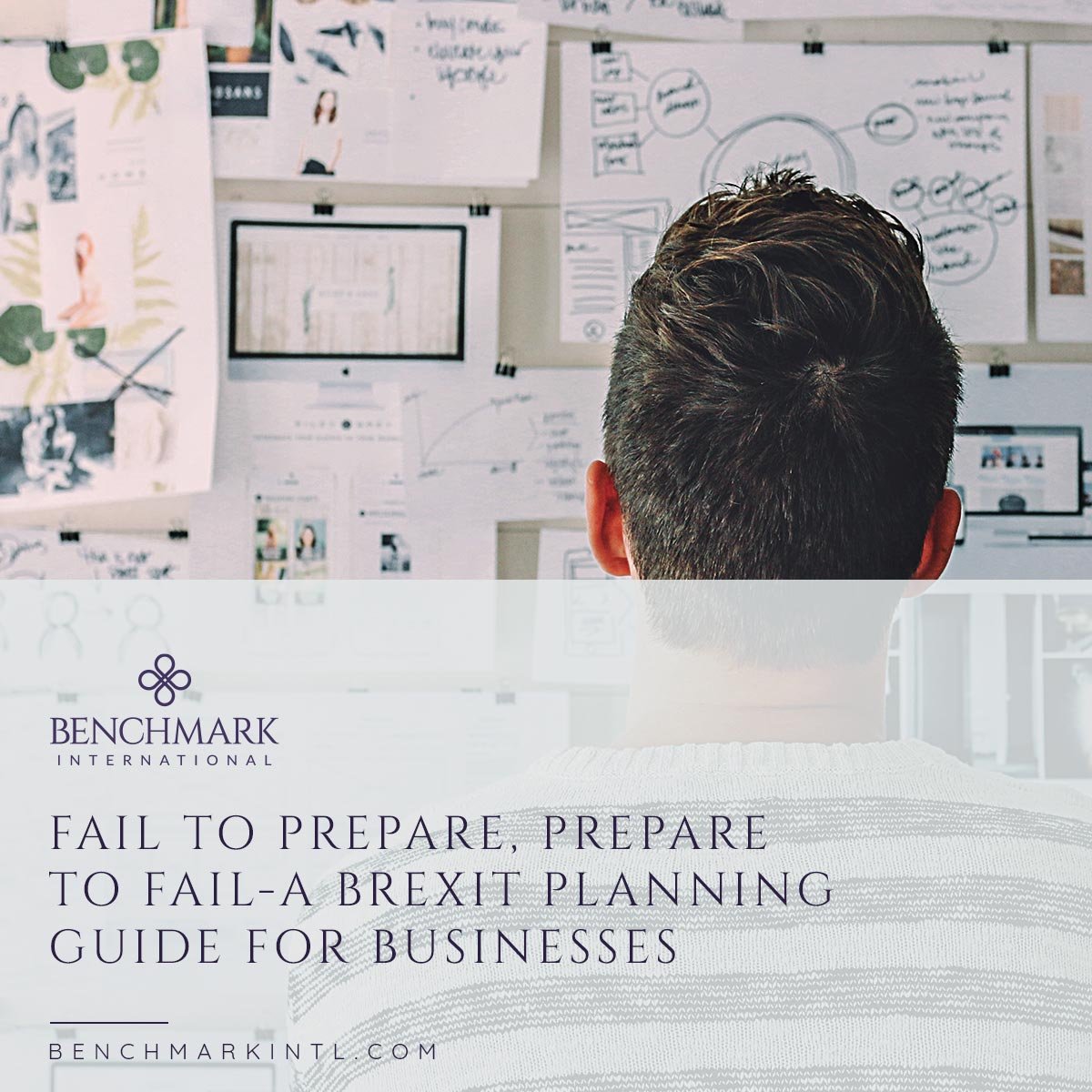
Following the UK officially leaving the EU on the 31st January, the UK is in a transition period until the end of 2020, where the government will aim to secure a trade deal before the deadline. During this period, essentially nothing will change, but it provides business owners with much-needed time to prepare their businesses for Brexit. The below discusses areas that will be affected by Brexit, and what business owners can do to prepare.
Trade
It’s unclear at the moment to what extent rules will change for importing and exporting in the EU, as this is one of the key negotiation points between the UK and EU during the transition period. Regardless of what is decided, rules for importing and exporting to the EU will change after the transition period. Therefore, you will need to make sure that you have all the licences, permits and approvals required, understand the implications of changes at UK borders, and check how much you will need to pay in VAT and rates. It’s important to make sure you review these for the purposes of your own business, but generally to prepare for changes you should:
Make Sure you have a UK EORI Number
This is a 12-digit number that you will need to move goods in or out of the UK. You might also need an EU EORI number if you are responsible for landing the goods in the EU country of destination and making the customs declaration.
Consider Adjusting your Contract Terms
Post-Brexit, trade could incur additional costs. You might decide to absorb these costs, or you might decide to change customer contracts – if this is the case, make sure you communicate this to your customers before any changes.
Supply Chain
The impact on supply chains is yet to be determined, as this is dependent on whether a deal between the UK and the EU is reached – regardless of this, it would be a good time to review your supply chain in case of a no deal Brexit.
There are several ways you can reduce the impact of Brexit on your supply chain, including:
Supply Chain Mapping:
A supply chain map can help you identify risk points in your supply chain. Once done, the risks can be prioritised, and a course of action agreed upon.
Talk to Suppliers:
Find out what your suppliers in the EU are planning going forward to ensure business continuity. In return, reassure your suppliers that you will continue to deliver to their expectations.
Identify Alternative Suppliers:
If you’re still worried about your supply chain after talking to your suppliers, identify UK suppliers to help reduce risk.
Stock Up on Goods:
Stockpiling advanced supplies could mitigate supply chain issues once the transition period has ended. Just make sure that you are fully insured, as there is usually a limit on the amount of stock covered.
Workforce
If you have employees who are EEA (European Economic Area) nationals, they will need to apply for settled status (if they have lived in the UK for five or more years) or pre-settled status (if they have lived in the UK for less than five years).
The application is free and must be applied for before the 30th June 2021, or the 31st December 2020 in the case of a no deal Brexit, to continue living and working in the EU.
As an employer, you can prepare for this by communicating with employees, making them aware that they need to apply for settled status, or to find out if they plan to remain in the UK after the transition period.
To mitigate the loss of staff putting a contingency plan in place could help. For example, you could hire temporary/agency/fixed term staff until things become clearer.
If you frequently employ EEA nationals and want an EEA national to move to the UK to work for you, from January 2021 they’ll be subject to the same migration restrictions as the rest of the world. Going forward, this could involve a points-based system, where people wishing to work in the UK would have to be earning at least £25k a year, on top of a minimum skills level requirement.
For those who employ unskilled or low-skilled workers from overseas, it might be wise to think of ways to attract potential candidates from within the UK, and to try and increase staff retention rates.
VAT
There will be changes to VAT rules and procedures, with three main changes that you should be aware about. These are:
The UK will introduce postponed accounting. This means there will be no need to pay VAT at the border; the only change caused by Brexit on VAT will be on parcels valued up to and including £135.
When selling to EU consumers, distance selling arrangements will no longer apply and UK businesses will be able to zero-rate sales of goods to EU consumers. However, these goods will be treated by EU member states as non-EU with the associated import VAT and customs duties.
UK businesses will continue to be able to zero-rate sales of goods to EU businesses but will not be required to complete EC sales lists. However, evidence of the sale will still need to be retained. As above, these goods will be subject to the associated import VAT and customs duties – which may vary depending on the EU member state.
There is much to consider when preparing your business for Brexit, and in no way is the above an exhaustive list. If there is something you are still unsure about and need advice on, visit the government website.
Thinking of a cross-border exit or growth strategy before the transition period comes to an end? Or maybe you’re thinking of an exit strategy before the deadline? Then contact Benchmark International today.
WE ARE READY WHEN YOU ARE
Call Benchmark International today if you are interested in an exit or growth strategy or if you are interested in acquiring.
Europe: Michael Lawrie at +44 (0) 161 359 4400 / Enquiries@BenchmarkIntl.com
Americas: Sam Smoot at +1 813 898 2350 / Smoot@BenchmarkIntl.com
Africa: Anthony McCardle at +27 (0) 21 300 2055 / McCardle@BenchmarkIntl.com
ABOUT BENCHMARK INTERNATIONAL
Benchmark International’s global offices provide business owners in the middle market and lower middle market with creative, value-maximising solutions for growing and exiting their businesses. To date, Benchmark International has handled engagements in excess of $6B across 30 industries worldwide. With decades of global M&A experience, Benchmark International’s deal teams, working from 13 offices across the world, have assisted hundreds of owners with achieving their personal objectives and ensuring the continued growth of their businesses.
Website: http://www.benchmarkintl.com
Blog: http://blog.benchmarkcorporate.com
 Benchmark International
Benchmark International  Benchmark International
Benchmark International 






